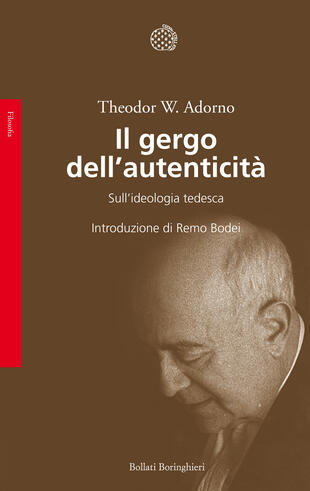

Il gergo dell'autenticità
-
Tradotto da: Pietro Lauro
Tutti i formati dell'opera
Acquistalo
Sinossi
Una faglia a strapiombo corre lungo il pensiero tedesco del Novecento, senza transito possibile dall'uno all'altro corpo roccioso. Separa Martin Heidegger e Theodor W. Adorno, e se occorresse un attestato della sua intransitabilità, lo fornirebbe questo saggio memorabile, risalente ai primi anni sessanta del secolo scorso. Con stringenza concettuale che non lascia scampo, il francofortese Adorno orchestra l'istruttoria contro il filosofo della Selva Nera, il quale lo ripagherà con la sprezzante noncuranza riservata a un «sociologo» qualsiasi. Oggetto dell'affondo adorniano è il culto dell'esperienza genuina, che nella Germania del secondo dopoguerra aggiorna, secondo i canoni di una distinzione spirituale ormai di massa, gli stilemi elitari in voga presso ristretti cenacoli intellettuali di alcuni decenni precedenti. Sul «gergo dell'autenticità», tanto più auratico e lustrato quanto più somigliante ai messaggi pubblicitari – «sottoprodotto della stessa modernità con cui è in rapporti di inimicizia» –, cala il giudizio squalificante di «ideologia tedesca», già coniato da Marx per la filosofia del suo tempo. Ma è soprattutto su Heidegger, ossia su colui che ha conferito rango teoretico e contegno linguistico all'autenticità, che si addensano i capi d'accusa di Adorno. Ne deplora le figurazioni, il cifrario che dà la vertigine della profondità avvolgendo «le proprie parole come arance nella cartavelina», mentre incarna solo «la forma attuale della falsità». Una patologia filosofica vera e propria, tra criptofascismo, tanatofilia, nostalgia dell'origine e di rapporti sociali arcaici. «Heidegger non è per nulla "incomprensibile"... ma egli si circonda del tabù secondo cui una qualunque comprensione lo falsificherebbe subito».
- ISBN: 8833927660
- Casa Editrice: Bollati Boringhieri
- Pagine: 190
- Data di uscita: 24-03-2016

